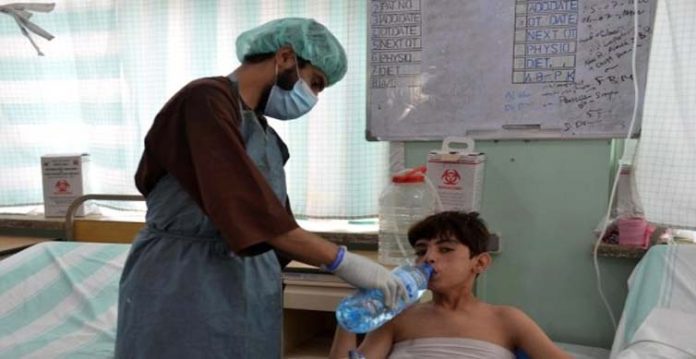In the latest update from Afghanistan, a UNICEF official informed that the situation will get worse and in the coming months, the humanitarian needs of children and women will increase too.
Afghanistan To Face Severe Drought, Water Scarcity
Omar Abdi, UNICEF Deputy Executive Director Omar Abdi informed the reporters at the UN Headquarters in New York that the situation in Afghanistan is critical and will only get worse. He said that in the next couple of months, the country will face severe draught, water scarcity, uncertain security environment, devastating socio-economic consequences of Covid 19 along with the winters coming.
Abdi said that even before the Taliban took over the country in Afghanistan, at least 10 million children across the country were in need of humanitarian assistance to survive. At least 1 million of these children were on the risk of dying to severe acute malnutrition without immediate treatment.
ALSO READ: 3 in 10 People Globally Don’t Have Basic Handwashing Facilities at Home : UNICEF
At the same time, the health system and social services are also on the verge of collapse as medicals supplies are running low. The cases of measles and acute watery diarrhoea are on the rise. He informed that the economic system is also on the verge of collapse and noted that many of the teachers and health workers have not been paid in at least two months.
Education Gains Must Be Strengthened
Abdi added that the education gain from the past two decades must be strengthened and rolled back. The number of children who are enrolled in school increased from 1 million in 2001 and most of them were boys, to around 10 million children including 4 million girls.
He noted that despite the progress, 4.2 million children are out of school including 2.6 girls.
ALSO READ: Children in India, Pakistan , Bangladesh at ‘Extremely High Risk’: Unicef
Meanwhile, the UNICEF, the UN and other humanitarian partners are leaving no stone unturned to help the financial shortfalls and the increasingly complex geopolitical situation to the support the civilians of the country.







